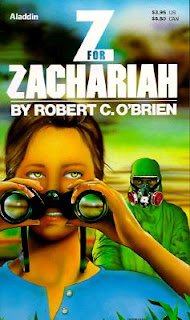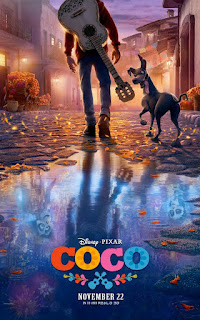Monday Musings: The Secret War in the Rankin/Bass Christmas Specials
Last week, I talked about how the Rankin/Bass and said I'd offer up my theory on what the cause of all that wintry magic is.
(Or laugh at me for taking a bunch of animated TV specials so seriously. Whatever floats your goat.)
(Or laugh at me for taking a bunch of animated TV specials so seriously. Whatever floats your goat.)
The Players
In case you've forgotten, I kept track of all the magical wintry folk last week and they are (with their original story/stories in parentheses):
- Lady Boreal (Rudolph and Frosty's Christmas in July)
- Winterbolt and the Genie of the Ice Scepter (Rudolph and Frosty's Christmas in July)
- Jack Frost (Frosty's Winter Wonderland or Jack Frost, depending on external or internal chronology)
- Father Winter, Snip, Gypsy, the snow sprites, etc. (Jack Frost)
- Winter Warlock (Santa Claus is Comin' to Town)
- Cold Miser (The Year without a Santa Claus)
- Mother Nature [as Cold Miser's mother, she presumably holds sway over winter] (The Year without a Santa Claus)
- Eon (Rudolph's Shiny New Year) [I forgot to mention him last week, but trust me, he fits.]
- Frosty, Crystal, Milly, and Chilly (Frosty the Snowman, Frosty's Winter Wonderland, and Rudolph and Frosty's Christmas in July)
- Santa Claus (Santa Claus is Comin' to Town)
- Rudolph [via Lady Boreal] (Rudolph the Red-Nosed Reindeer, though technically not confirmed as a wintry power until Rudolph and Frosty's Christmas in July)
It's quite a lot. So what are all these wizards, sprites, snowmen, and such doing with all this magic? In my theory, fighting a war.
The War
Why a war? Well, mostly because that's exactly what we see happening between Lady Boreal and Winterbolt in Rudolph and Frosty's Christmas in July. They seem to be locked in combat over control of the Northlands, but since Santa is later to make his home there (presumably with the Lady's blessing) it seems more appropriate to say they are fighting for control of winter and, by extension, Christmas.
Although we only see Winterbolt and Lady Boreal openly fighting, it's not difficult to imagine that some of these other players were affected by their struggle, if not directly involved. Winter Warlock, for example, seems to be a diminished version of Winterbolt. Eon is certainly villainous and cold-hearted, doing whatever is in his power to prevent himself turning to ice and snow. But others like the Cold Miser seem neutral in the fight, content to be in charge of their own domains without entering battles (aside from his sibling rivalry with Heat Miser). Then of course we have Mother Nature and Father Winter (who, along with his army of wintry folk, seems intent on keeping the world in its proper balance).
The Sides and Their Statuses
So, for the evildoers we have: Winterbolt, Winter Warlock, and Eon. Winterbolt is obviously the Big Bad of the scenario. If he ever had any humanity (doubtful), he lost it long ago. The loss of his power (connected to the Genie of the Ice Scepter) turns him into a tree, with no hope of revival. He is the only villain not to be reformed in the series.
Winter Warlock, in contrast, seems to have traded his humanity for his power, resulting in a cold heart and a somewhat deformed appearance. When Kris Kringle (that is, Santa) shows him kindness, Winter's heart is warmed. His appearance becomes that of an old man. And, most importantly, he loses the majority of his power (and, based on his vanishing from the narrative, his immortality).
Eon, unlike Winter Warlock, is a force of nature (perhaps even of Mother Nature) who is destined to turn to ice and snow at the end of his life (one eon). Like Winter Warlock, he is redeemed when his heart is warmed by kindness and joy (brought about by Happy New Year's unusually large ears, poor kid).
From these examples, it becomes clear that the truest weapon Lady Boreal's side possesses is not power, but something stronger -- joy, hope, laughter, and love. In short, the very things associated with Christmas. This is made even more apparent when we look at the wintry folk on her side of the battle.
Jack Frost, when we see him in his eponymous special, is happiest when he makes others happy. He takes joy in the joy others take in his work. Though often overlooked (see Frosty's Winter Wonderland, The Santa Clause 3, and especially The Rise of the Guardians for more on this theme), Jack is one of the most powerful forces in Lady Boreal's troops. Unfortunately, as we discussed last week, he nearly lost himself to bitterness and a cold heart like Eon and Winter Warlock. After losing Elisa, Jack became jealous of other wintry figures like Frosty (though he never seems to worry about Santa, presumably because Frosty is made of snow, which is part of Jack's purview). By the time we meet him again in Frosty's Winter Wonderland, Jack even seems to be more powerful than before, not only controlling frost, but also wind, snow, and the general temperature. Frosty and Crystal's friendship saves Jack from becoming another Winterbolt, however, and he again becomes a force for joy. (It is interesting that Jack is forced to remember the same lesson in Frosty's Winter Wonderland that Father Winter has to teach him at the end of Jack Frost, namely that there are limits to Jack's power that must be respected.)
Frosty and family get a place in the roster for several reasons. First, Frosty is made of "Christmas snow" and as such is able to be revived even after he's melted away. (We see this twice in the series, once when Santa allows a cold wind to blow into a greenhouse to revive Frosty, and once when Jack Frost returns to keep the Frostys cold until they can reach the North Pole again.) This connection to Christmas and joy in the midst of the cold, dark months is crucial to Lady Boreal's struggle against Winterbolt. Second, Frosty himself is capable of granting life. Although Frosty's own creation is credited to his hat (whose origins remain mysterious), his wife's creation is due to his give of love (there's one of those warm feelings again). Presumably it is Frosty and Crystal's own love that allows Milly and Chilly to exist. But the important thing to remember is that none of the other wintry powers we see is capable of bestowing life to another. That makes Frosty, in his way, one of the most powerful magicians in the Rankin/Bass universe. Too bad he can't go out when the thermometer is reddish.
Santa Claus is a symbol of hope and kindness from his earliest appearance (Rudolph the Red-Nosed Reindeer notwithstanding; as I said, we only have Sam's word for Santa's behavior and odd appearance there). Although never explicitly stated (aside from The Life and Adventures of Santa Claus, which is deuterocanonical), it's to be assumed that Santa is immortal by the end of the series, even if he can catch cold. Otherwise, he's quite a spry old man (well over 100 years by the series' end), as is his wife. (Incidentally, in Santa Claus is Comin' to Town, Kris and Jessica are the only redheads in an otherwise dark-haired Germanic town. Given Kris' unknown heritage, it is possible that at least he is directly related to all the magical folk populating this post, though there's little enough to base that on.) Though Santa himself has no apparent magic (aside from his long life), his status as a power for hope and joy keeps him firmly on the side of Lady Boreal.
At first glance, Rudolph is just a young reindeer with an unfortunate mutation. However, he learns to cope with his "nonconformity" and turns it into another symbol of hope and light. This is no accident, for as we learn in Christmas in July, his nose is invested with the power of Lady Boreal herself. Speaking of . . .
A mysterious figure barely mentioned in the series (isn't retconning wonderful?), Lady Boreal is seemingly not all-powerful despite her strength. But what's interesting is that Lady Boreal is one of the few powers of nature (she's the Queen of the Northern Lights, and she can bestow magic) to take a side in this conflict. Of the others in her vein, only Jack Frost takes part in the struggle for winter, Christmas, and joy.
Cold Miser, Father Winter and his followers, and Mother Nature all remain neutral, never actively attempting to help or hinder either side. They also do not suffer from cold hearts of bitterness and jealousy as Winterbolt and the other villains do. (Perhaps this is due to none of them being outright villains; Cold Miser is an obstacle at best, an antagonist turned antihero at worst; Father Winter only stays within his domain; and Mother Nature has her hands full keeping her kids in line.)
So What?
What does this theory actually add to the story, aside from some continuity? Well, I think framing each special as a battle for the dominion of Christmas (and by extension, the survival of the best in humanity), adds some weight to some of the sillier specials like Shiny New Year and helps make more sense of the retconning that is Christmas in July. Lady Boreal is forced to protect the world from Winterbolt by introducing other guardians of winter like Rudolph and Frosty. And in the end, the very humans she tries to protect from beings like Winterbolt are responsible for his defeat -- Lily's iron guns and her down-to-earth logic break Winterbolt's scepter and sever him from his power. (Why didn't Lady Boreal think of that?)
Plus, if you're into fanfiction, this theory opens up all sorts of stories that could be written about the War for Winter.
I'm sorry this post has gone so long. Thanks for reading, and let me know what you think in the comments! Does this make the specials more enjoyable for you or does it just distract from their nostalgic value?




Comments
Post a Comment
What do you think?